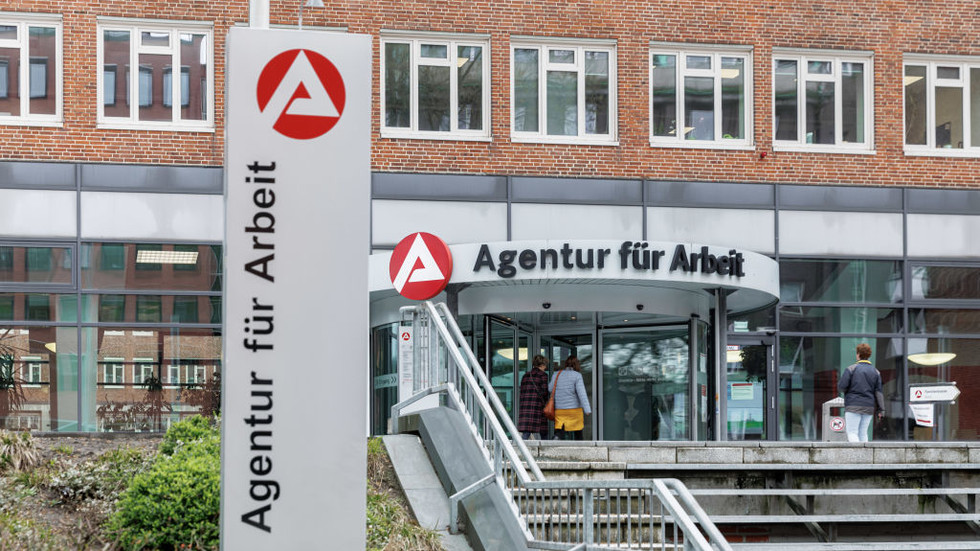
The spike in the jobless rate coincides with the influx of Ukrainian refugees

An entrance to an employment agency office in Hamburg, Germany. © Markus Scholz/picture alliance via Getty Images
Unemployment in Germany rose more than expected in June due to “difficult economic conditions,” an official report revealed this week.
The Federal Employment Agency (BA) said the number of people out of work jumped by 28,000 from the previous month in seasonally adjusted terms. May saw a 13,000 increase from the previous month, the report noted. Analysts polled by Reuters had expected the figure for June to rise by 13,000 as well.
According to the BA, unemployment in the country usually declines in the early summer. On average, over the three years before the coronavirus pandemic, it fell by 28,000, or 1%, in June.
This year, however, all 16 federal states in Germany have seen a rise in unemployment rates compared to the same month in 2022.
“The more difficult economic conditions are now also being felt in the labor market,” Reuters quoted labor office head Andrea Nahles. “Unemployment is rising and employment growth is losing momentum,” she added.
Germany is the EU’s biggest economy, and has one of the lowest unemployment rates on the continent. The number of people out of work in the country increased by 8% year-on-year in June, the Labor Office said. The total number of unemployed, not seasonally adjusted, stands at 2,555,000.
The steep rise in unemployment rates can be partly attributed to the influx of refugees from Ukraine. More than a million people have arrived in Germany from Ukraine since February 2022.

At this time last year, the German government began a program of job assistance for Ukrainian refugees, and unemployment jumped by 103,000 month-on-month, or 5%, compared to June 2021.
As of this month, 193,000 Ukrainian citizens are unemployed in Germany, official data shows. A total of 499,000 employable Ukrainians are registered with job centers and employment agencies in Germany, compared to just 20,000 in February 2022, according to the BA’s figures.
The labor office admitted however, that even without taking into account Ukrainian refugees, unemployment in Germany would have risen year-on-year. Inflation in the country jumped unexpectedly to 6.4% in June, up from 6.1% in May, preliminary data from the German statistics office showed on Thursday.
Germany has been in what economists describe as a “technical recession,” as its economy has contracted for two quarters in a row, at the end of 2022 and the beginning of 2023. The German central bank said on Monday that it expected the recession to have ended in the spring quarter, adding that GDP would “rise slightly” in the April to June period.
For more stories on economy & finance visit RT’s business section




